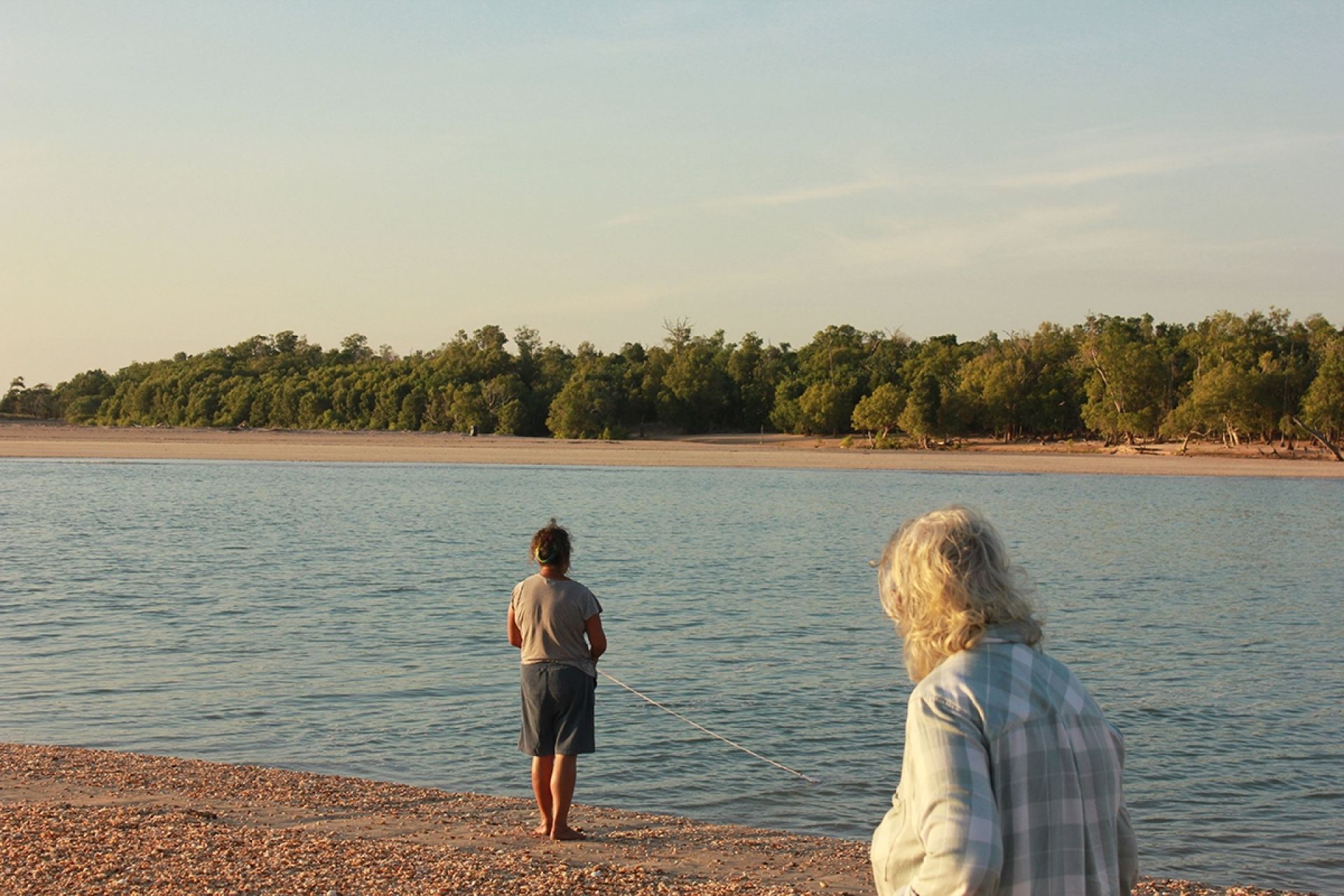

The Centre for Australian Languages and Linguists (CALL) recently held an on-country language workshop funded by the Indigenous Languages and Arts Program (ILA). The language gathering was held in Balgal as a place for Wadjigny to come together to celebrate, share, and collectively remember. The workshop consisted of finalising resources, recording audio for readers and posters, and collecting Wadjigny stories.
Project Overview:
Under the direction of Elders and community members, this project aimed to increase the availability and range of Batjamalh, Emmi and Mendhe language resources for language learning for adults and children of the Wadjiginy, Emmiyangal and Mendheyangal families, which also supports community rangers and organisations talking to their country.
Wadjiginy, Emmiyangal and Mendheyangal country is located in the north-west Top End of the Northern Territory, where a lengthy period of colonisation (since 1869), has impacted heavily on these language communities and resulted in only a few speakers left alive today.
The project aims to contribute to the small existing store of Batjamalh, Emmi and Mendhe resources that can be used by community members to assist in reclaiming and learning their languages. The project has been complementary to the work undertaken by Rangers in these communities and contributes to the education program, to ensure the vitality of both the language and the land of Wadjiginy, Emmiyangal and Mendheyangal peoples.
What's next?
As the project comes to an end, project officers at CALL are finalising and distributing the resources created from the project. A community language meeting will aid in finishing the project, as Elders and community members direct what future projects they want for their family and communities, in addition to consulting with the Belyuen school, and Belyuen community organisation.
